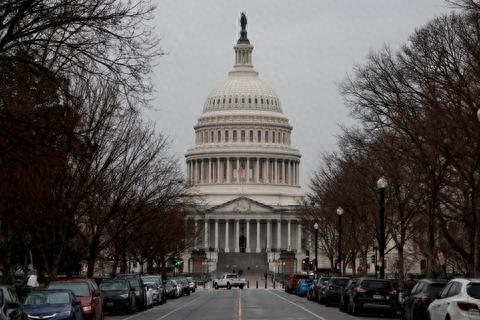
According to data released by the U.S. Department of the Treasury on September 18, local time, the total U.S. national debt exceeded $33 trillion for the first time on the 18th, reaching a record high. U.S. media said that the ability of the U.S. government and Congress to respond to severe challenges has been significantly reduced. The current approach of the two parties cannot restore fiscal rationality and sustainability, and is irresponsible behavior. "The United States has reached a new milestone that no one is proud of... We have become numb to these huge numbers, but that does not make them any less dangerous," said McGinus, chairman of the Committee for a Responsible Federal Budget. sex."
The scale of the U.S. national debt continues to hit new highs. There are several main factors behind this: 1. The COVID-19 epidemic. The epidemic has led to a significant increase in U.S. government fiscal expenditures. The U.S. government has introduced a series of stimulus measures during the epidemic, including issuing unemployment benefits and subsidizing companies and individuals. , to support the economy and people. These measures resulted in a significant increase in government fiscal expenditures. The second is bipartisan politics. The two political parties in the United States have differences on fiscal policies, resulting in the government being unable to effectively control expenditures. Democrats tend to increase government spending, while Republicans tend to decrease government spending. This disagreement prevents the government from forming an effective fiscal policy, leading to an increase in the national debt. The third is inflation. The U.S. government needs to pay more interest to repay its national debt, resulting in an increase in the U.S. government's financial burden.
However, behind the debt problem, what is even more serious is the risk of a "shutdown" faced by the U.S. government. The US government's 2023 fiscal year will end on September 30, and there is currently not much time left for Congress to pass the 2024 fiscal year budget. If the House and Senate cannot vote to pass the fiscal year 2024 budget before then, the government may face a "shutdown."
According to the US Consumer News and Business Channel (CNBC), passing a temporary appropriation bill can keep the US federal government operating before the next funding cycle, but the core issue of debt still makes the US Congress deadlocked on the bill. Some Republicans in the U.S. House of Representatives announced on September 17 that they had reached an agreement within the Republican Party on temporary allocations to the federal government. But the bill is not expected to pass the Democratic-controlled Senate.
The Washington Post reported that Fitch had previously downgraded the U.S. debt rating and believed that the United States’ continued political brinkmanship had not solved the root causes of the country’s fiscal problems. Once the U.S. government is shut down, it will intensify people's understanding and shake the leadership of the United States around the world.
Former U.S. Comptroller General David Walker published an article in Newsweek, saying that Americans have witnessed a significant decline in the ability of the president and Congress to deal with serious challenges, and public confidence in government institutions is rightly at or near an all-time low. Sadly, “the United States of America neither represents nor responds to the public.” David Walker criticized that neither of the two major political parties in the United States has the courage to tell the truth and make the necessary hard choices to restore fiscal rationality and sustainability. Doing so is irresponsible and unethical. At the same time, fiscal issues are not the only important issue that American politicians have failed to effectively solve. Immigration, border security, energy, environment and other issues also face the same situation.

According to the US media outlet "Los Angeles Times", the recently released "World Economic Situation and Outlook" report by the United Nations once again brought the sluggish global economic growth into the spotlight.
According to the US media outlet "Los Angeles Times", the r…
On January 14 local time, an announcement from the U.S. Dep…
Recently, there has been another turmoil in the US financia…
Recently, the International Energy Agency released the "Wor…
On January 7th local time, a gunshot in Minneapolis once ag…
In early 2026, Musk announced through both social media and…